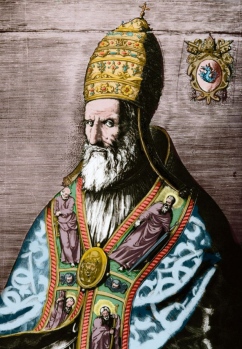
April Fools’ Day is the time of year where we spend the morning on the lookout for pranks and tricks being played on us.
Newspapers and magazines will publish fake stories, your friends and colleagues will be looking to catch you out – you’re basically on high alert until midday, when you can breathe a sigh of relief for another year.
But where did the annual tradition come from and why is it still so popular?
No-one has a definitive answer as to why the day exists, but there are some ideas out there.
Here are some of the strongest theories behind why we wake up to cling film on the toilet and ludicrous news stories every April 1.
 There is strong evidence that Pope Gregory XIII is behind the day of trickery.
There is strong evidence that Pope Gregory XIII is behind the day of trickery.
He adopted the Gregorian calendar in 1582, which moved our year from March to January 1.
Although the change was widely advertised, some people missed it and when these people celebrated the new year on April 1 they were seen as foolish.
When they were ridiculed, the day became known as Fools’ Day.
The French would put paper fish on the ‘fools’’ backs, and called them Poisson d’Avril – or April Fish.
This is still the term used in France for April Fools’.
A different theory is that April Fools’ Day is left over from the idea of renewal festivals, which marked the end of winter and the start of spring.
One of the oldest versions of this occasion was the Roman festival Hilaria.
The festival coincided with the spring equinox, and invited Romans to take part in games, pranks and masquerades.
Those who took part in the festival would wear disguises, play tricks on people and generally wreak havoc.